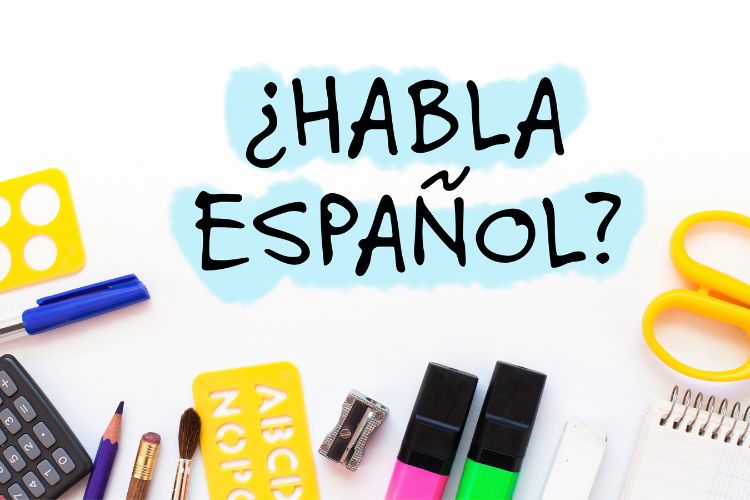I’m a language learner. I like to learn new languages. I speak several, and I’m hoping to learn several more. But for a good portion of my life, I struggled to learn languages.
As a child, the languages I most wanted to learn were those spoken by my family members. These included my ethnic language, Circassian, as well as a variety of unrelated languages – Arabic, Turkish, and Russian.
For a variety of reasons, I never learned them, and I just decided I was bad at learning languages. That wasn’t true for me, and it isn’t true for you. So let’s look at what it takes to learn a new language and how you can set yourself up to succeed.
It Takes Motivation

Motivation plays a crucial role in your success. Decades ago, psychologists identified two basic types of motivation.
Intrinsic motivation stems from the enjoyment or personal satisfaction a person derives from engaging in a behavior.
Extrinsic motivation, as the name suggests, is a drive that comes from outside. Money and the approval of others are both good examples of extrinsic motivators.
Linguists use similar concepts to describe the motivation specific to learning a language. Integrative motivation is a drive to connect with the culture and people of a region by learning their language.
It can also be more specific, such as learning a language to improve communication in cross-cultural relationships. Or show respect for the language and culture of a family member who doesn’t speak English.
Instrumental motivation is commonly described as a drive to learn a language for reasons other than the language itself. Learners who undertake foreign language study primarily for school credit or as a supplement to their business qualifications are instrumentally motivated.

Studies show strong correlations between integrative motivation and high levels of language proficiency.
Learners motivated by the integrative approach pick up pronunciation and accent more effectively. This is thought to be due to greater empathy toward native speakers of a language.
Integrative motivation doesn’t necessarily decrease the time necessary to learn the basics of a foreign language, but it’s not unreasonable to suggest that a strong interest in a language and culture might facilitate the journey toward true fluency.
To sum it up: the best motivation you can have is a strong feeling of personal interest. The weakest motivations are those where other people’s requirements are forcing a person to do something. Motivation is highly likely to affect how hard someone works at learning the language.
We’ve already discussed getting clear on your “why”. Next, let’s look at your goals and expectations.
It Takes Setting Goals and Expectations
Some language learners are satisfied with learning the basics of a foreign language. This is common among world travelers who foresee a need to ask directions, understand a menu, or offer friendly greetings to people they meet in a foreign country.

Other learners may be interested in a bit more mastery in order to conduct basic business transactions or have simple conversations with speakers of another language.
A third group is driven toward fluency. They desire the ability to have meaningful conversations on a variety of topics, read more complex text, and understand most of the spoken language they hear.
These divergent goals obviously require significantly different time commitments, and a language learner must have a reasonable sense of these differences.
Understanding the levels of commitment necessary for various levels of mastery can assist you in matching your goals to your expectations. That goes a long way toward enjoying the learning process and avoiding frustration.
What You Need to Learn a Language (7 Elements)
Your motivation, goals, and expectations will impact your entire language-learning journey. Along with those three, I see seven other elements that’ll you need on the road.

1. You Need to Be Passionate About Learning Your New Language
Lots of folks point out that language learners need a reason. That’s true, but I’ll go one step further: you require a compelling reason to learn a new language. You need a reason so compelling that it fuels your passion.

Learning a new language is a very rewarding experience, but one that takes considerable time and energy. Your passion will drive your efforts even when you’re stretched for time or considering giving up.
2. Language Learning Needs to Be Fun
Notice I didn’t say that it should be fun. It needs to be fun. Generally speaking, human beings stick with tasks that are fun or rewarding. Learning a language can be both – but unless you are being paid to learn as part of your job, it absolutely needs to be fun.

There is no one-size-fits-all approach, and you should draw upon lots of resources.
It’s great that you’re reading this right now. I’m flattered that you’re open to using my methodology to learn a new language. You might even decide to use some of my resources.
But you should draw upon as wide a set of resources as possible. Think of it this way: would you be content speaking English with only one person for the rest of your life? Of course not. You shouldn’t be content drawing upon a single resource to learn your new language, either.
3. You Need to Be Realistic, and You Need to Put in the Time
I like to think of learning a language as akin to getting into shape. It’s a long-term process, not an event.
Despite advertisements to the contrary, the truth is that success takes time… not long periods of time, but time that’s measured in weeks and months, while most people want to see dramatic results in days.

As a result, many people waste time because they start with unrealistic expectations and then give up. Even worse, some don’t fully give up or fully succeed. They end up wasting time over the long term, putting in the hours without really seeing results.
You need to be realistic about what you can achieve and the time required to achieve it. You also must be consistent with your investment of time.
This doesn’t mean you have to slave away for hours a day, or that your progress will be measured in years. But you need to make sure that your goals, expectations, and time commitment are all aligned.
4. There’s a Difference Between Studying a Language and Learning It
If you’ve ever met any toddlers, you know they are pretty skilled at speaking. They make grammatical mistakes, but there’s no need or desire they’re unable to express.

Many adult language learners would love to speak their new language as well as a four-year-old. But if you think about the differences between children and adults, you’ll realize that toddlers don’t study languages; they just learn them.
We often hear something like, “I studied X language for years, and I can’t speak it.” There’s a big difference between studying a language and actually learning it. This has a major implication for how you’ll be investing your time, which is a central theme we’ll return to later.
5. What You Learn Is Far More Important Than How You Learn It
This might seem odd coming from someone who sells his own methodology for learning a language, but it’s true for a few reasons. First, if you only want to learn a few of the basics, there won’t be enough depth to your content for any method to be much better than another.
On the other end of the spectrum, if you want to learn a significant volume of content in a given language, that content needs to be fun, interesting, relevant, and helpful to you and your specific language learning goals.

Don’t worry about method or structure; do what works for you. This is one of the most valuable messages I can offer you.
So long as you are enjoying your efforts and making progress with your goals, you should never feel locked into a single approach, resource, or structure. Language learning is a bit like eating food. You need to consume a variety of things for a variety of reasons.
In learning a language, sometimes you’ll eat exactly three meals a day, and sometimes you’ll snack.
Sometimes it’s good to eat the same thing every day, like eggs for breakfast, but someday, you’ll need variety. Do you always eat for utility, or do you sometimes eat for pleasure? You should absolutely feel free to mix things up.
6. Language Learning Is an Ongoing Process, Not an Event with a Terminal End Point
Language learning is like building a bridge across an ocean. You want to cross to the other side. You want to BE THERE. You build that bridge, and it takes you time and effort.
One day, you look back, and you feel so proud and satisfied about how far you’ve come. Then you look forward again, and you feel daunted by how much farther you still have to go.

Of course, this is an imperfect analogy, since it implies that there is a terminal point whereby you actually reach the other side.
The reality is that language learning is a process, not an event. There is no terminal point where you are “done.”
If language learning were an event with a terminal completion point, we’d all be equally skilled speakers of English, able to express every emotion with the perfect word, just one short essay away from winning a Pulitzer Prize in literature.
7. There Is No Such Thing as People Who Are Bad at Learning Languages
This is one of the most dangerous myths out there. At best, it can demoralize you and cause you to abandon your efforts. At worst, it gives you an excuse that justifies giving up.

Anyone and everyone can learn a language. You’ve already learned one—English.
What’s stopping you from learning another? I’m confident my words are resonating with you right now, and I believe what follows will be of considerable value to you along your language-learning journey.







